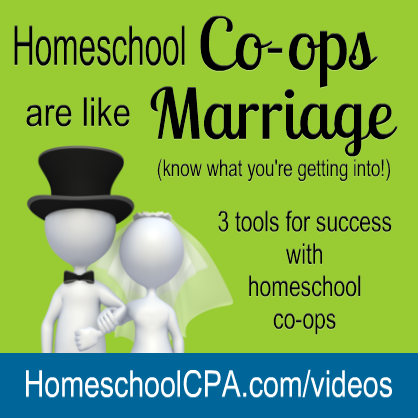Nonprofit attorneys at Veneable LLP posted 15 Most Common Nonprofit Bylaw Pitfalls: How to Avoid the Traps
I adapted their suggestions (all excellent if you want to read their entire list) for homeschool organizations and added some of my own tips as well.
Common Nonprofit Bylaw Pitfalls
1. Understand your state’s nonprofit corporation law.
Veneable LLP advises, “Nonprofits need to be sure that their bylaws do not permit practices that are prohibited by the state nonprofit corporation act.” It’s not a lot of fun reading state corporation laws (I’m read several of them!), so this is where a pro bono lawyer would come in handy. Ask your members if anyone has a lawyer in the family who would be willing to check your bylaws against state nonprofit corporation laws.
2. Make sure your bylaws are consistent with other regulatory documents.
If your homeschool group is an educational organization (and most are!), make sure your bylaws do not contradict IRS requirements for 501(c)(3) tax exempt organizations. There are certain things the IRS prohibits 501 (c)(3) organizations from doing such as distributing its assets to members. Read the IRS prohibitions .
3. Be sure to address all foreseeable scenarios.
What if you need to remove a board member? Do the bylaws address that? How will the board member be replaced? Try to think of how things could go wrong or how a group of disgruntled members could take over your organization. Veneable LLP is correct is stating, “It is important to take the time to carefully walk through all of the “what-if” scenarios to avoid holes in the bylaws.”
4. Keep your bylaws flexible.
From the attorneys at Veneable LLP, “Building flexibility into the bylaws including a range for the exact number of board members and allowing the board to designate additional officers not named in the bylaws, can help the organization moving forward. Bylaws should provide an outline of the governance structure but also should allow some flexibility if and when changes are needed in the future. ”
5. Reserve the details for policies, not bylaws.
“Bylaws generally should be a relatively concise and easy-to-navigate document, leaving the details to policies, which can be more easily revised in the future. This way, bylaws will not need regular amendment.” advise Veneable LLP. Frequently homeschool organizations have policies on sick children, membership requirements, dress codes, late payments, student conduct, etc. These do not belong in the bylaws, but in separate policies.
6. Keep your bylaws current.
One homeschool group used bylaws that mentioned notice of meetings could be delivered by telegraph! Time to update those bylaws! 🙂
7. Ensure that your purposes clause reflects your organization today.
Veneable LLP advises, “Most nonprofits also have a purposes clause contained near the beginning of their bylaws, and many times that purposes clause will differ from the purposes clause in the articles of incorporation. The two clauses should be fully consistent and, therefore, an organization might want to include a clause in the bylaws which simply refers to the purposes clause as written in the articles of incorporation. In addition, the purposes clause in the articles of incorporation should be reviewed, keeping in mind that a clause drafted 30 or more years ago may not accurately or fully reflect your organization today.”
An example would be for faith-based homeschool organizations to be very clear that they have a religious purpose, so that their religious freedoms are protected. If your religious purpose is not clear in your Articles of Incorporation, then it’s time to amend your Articles. This is usually done through your Secretary of State’s office.
8. Closely review the meeting and voting procedures for members and directors.
Review how members (if there are voting members) and directors are permitted to meet and vote. Many homeschool organizations do not have voting members; the board makes all the decisions. In this situation, it’s important to be very clear in the bylaws how the board is chosen.
9. Do not make your bylaws too difficult to amend.
Occasionally your bylaws may need an update. Usually bylaws require a super majority of 2/3 or 3/4 of the board to change the bylaws. One homeschool group found that their bylaws required a meeting of members with two week notice before they could change their bylaws. This was quite difficult to accomplish in the summer and slowed down their ability to make necessary changes.
I hope you find these tips on bylaws helpful. Take time for your board to review your bylaws (hopefully you can find them!) and update them as needed. If you don’t have bylaws, you can start with my sample bylaws or do an internet search on “homeschool bylaws.”
Carol Topp, CPA



Thank you for your newsletter. I am learning a lot. I am the chairman of a homeschool organization that is a clearing house of information for homeschoolers in our area. We serve 5 counties and have a lending library in addition to providing standardized testing and graduation activities. We were very close to closing our doors last year and feeling like we were no longer needed. In this process we have several contract positions. One of the positions, office manager, was looking to leave her position. I asked the board if I could step down and take that position. They wanted me to stay on as chair but were willing to rewrite our bylaws in order for me to manage the day to day activities of this position. My question is, should we change the position from a board position and make it an executive director position that is allowed to receive a salary? I’m very interested in your answer and making our non-profit all that it can be to serve our members. Thank you.
Karen, It’s a bit difficult to determine what is best for your organizations from your brief description, but I think that taking on a paid Executive Director role would be a workable idea. Typically an Executive Director attends board meetings, gives a report on the operations of the organization, but is not given a vote. You would need someone to step into the role of Board Chair.
Carol Topp, CPA
Thank you so much for this valuable resource! We are a newly formed faith based homeschool that operates under our ministry/church in Virginia. Because we are faith based we have elected to not form as a 501c3. The church has its own bylaws and we are currently drafting bylaws for the homeschool— any suggestions? A littlw background info: students’ families, whether members of the congregation or not, contribute a monthly educational fee to help cover operating expenses, materials, and to reasonably compensate teachers (education ministers). A portion of the tithes and offerings from the church are given to the homeschool to help us financially as well. We want to save money to expand, but uncertain how this nonprofit can save money for expansion of the homeschool program. Please offer your wisdom!
Thanks